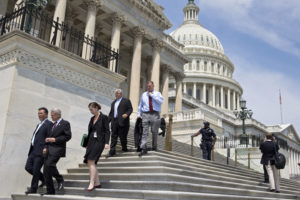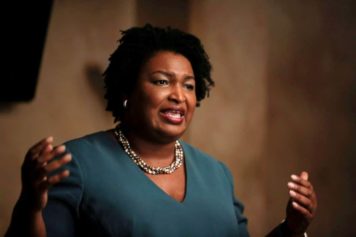
The study, released by The Higher Heights Leadership Fund and the Rutgers University Center for American Women and Politics, in collaboration with the Center for American Progress, reports that Black women are making major strides in education, health, and other areas, but their presence is scarce in government.
According to the research, women account for over 52 percent of the Black population. In this, Black women represent nearly 60 percent of the voters, and vote at a rate almost 10 percent higher than Black men.
Information gained from the Center for American Progress shows similar positive trends. In education, women earned more than half of all science and engineering degrees completed by African-Americans—more than Black men. In entrepreneurship, the number of businesses started by Black women swelled nearly 258 percent between 1997 and 2013.
But the power and leadership Black women demonstrate in our communities are not reflected in government.
The same report revealed the following:
• Out of the 98 women in Congress, only 14 are African-American.
• Former Sen. Carol Moseley Braun, D-Ill, an African-American who served from 1993 to 1999, was the first and only Black woman to ever serve in the Senate.
• Of the 29 women of color currently serving in the House of Representatives, 16 are African-American women.
• In the nation’s 100 largest cities, only one African-American woman is currently serving as mayor, Stephanie Rawlings-Blake of Baltimore.
• Currently, 242 African-American women serve in state legislatures nationwide, comprising only 13.5 percent of the total number of female state legislators in the country.
• Only two of 73 women serving in statewide elective executive offices are African-American women.
• State Rep. Karen Bass (D-Calif.) became the first African-American woman to serve as speaker of a state house in 2008.
Kelly Dittmar, assistant research professor for the Center for American Women in Politics, explained to the Wall Street Journal that there are low numbers of Black women in politics because they are fairly new to the political arena, but the future holds bigger changes.
“Black women’s representational growth has occurred primarily in the past two decades with the trend likely to continue upward as more Black women run,” for office, Dittmar said.
.


